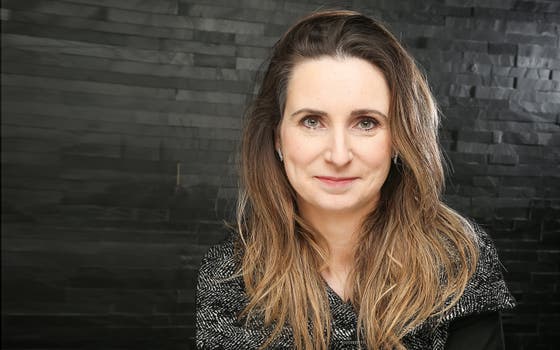Technologies crucial to the future of healthcare

Technologies can be applied in an infinite number of domains, but preventive health is one of the most impactful, according to Patricia Jaspers, managing director at Eindhoven Artificial Intelligence Systems Institute (EAISI, TU/e). ‘It’s about preventing disease and optimizing quality of life. With technologies, such as digital twinning, we can better predict people's health, give personalized advice for treatments and a healthy lifestyle, and increase the self-reliance of vulnerable people. That takes pressure off overburdened care.’ To maximize the potential of technologies in healthcare, TU/e is working with WUR, UU and UMC Utrecht in the EWUU alliance. Jaspers, a member of the EWUU Preventive Health and AI Steering Committee, sees plenty of opportunities here for (young) researchers.
Why this collaboration on preventive health?
In the EWUU alliance, the four institutes work together on multidisciplinary research on major societal issues. Within this, they have established the Institute 4 Preventive Health (i4PH). TU/e contributes knowledge on technologies, WUR on healthy food, lifestyle and environment, UU on social, governance and environmental sciences and UMC Utrecht on health care. Together we are working on solutions for preventive health. These are crucial if we want to continue to make use of affordable and high-quality care in the future. After all, the pressure on the healthcare system and on costs is increasing dramatically.
What are the biggest challenges and how can technologies contribute?
One of the most pressing questions is: how do you get people to behave more healthily? We are all different, both physiologically and behaviorally. Moreover, not everyone has the same opportunities for healthy living. An individual approach is therefore more effective. Wearables allow us to collect ever better data from individuals and their environment. In principle, this allows you to build a digital copy (digital twin) of a human being. In a European context, we are already working on this in the HEALTHYW8 project. With this data you can better predict which advice or interventions are most promising to prevent illness or relapse. Of course, in this you will have to take into account people's right to self-determination.
An individual's living environment is also important. For example, i4PH is funding the PROACT project in which the self-reliance of elderly people in the home situation is being investigated with the help of sensors. For example, with sensors in the home, researchers measure the (in)stability of the residents and to detect early relapse.
The impact of personalization is great, but it goes beyond just predicting. You can also use it to prevent diseases: by detecting and intervening at an early stage, people need less care. Then you assume that everyone has an equal chance of a healthy life. In practice, we actually see that the health differences between people of higher and lower socioeconomic status are increasing. To change that, the whole system around them has to change. Technology can help with that, too: by providing insight into what it takes to make healthy choices and - perhaps more importantly - why people don't make those choices. If they do not buy healthy products because they are too expensive, this is, for example, important information for policymakers to support their interventions.
What has the Preventive Health programme already accomplished?
We have invested heavily in identifying and connecting researchers within the four institutes who are tangentially related to preventive health. There is now a good foundation for a preventive health community. We have also provided seed money for nine projects, to encourage collaboration between the four institutes and as a stepping stone to larger research projects. One of those projects (LIFTS) has just been awarded 1.4 million euros from NWO for research into encouraging healthy behavior among illiterate young people from lower socioeconomic groups.
Our liaison officers also help researchers find funding and partners for follow-up research. In addition, we organize meetings for inspiration and new collaborations, such as pressure cookers and conferences. We also provide exposure for the researchers working on preventive health, including through our website and social media channels. This gives them a lot of visibility and often new partners.
What is your appeal to colleagues?
I can mention that there are many opportunities for multidisciplinary collaboration and various technologies in preventive health, but above all I hope that colleagues themselves experience the added value and become enthusiastic. Especially for young researchers it is very instructive to look outside the walls of your own institute and discover how you can use your talents optimally. We also see that this social impact is becoming increasingly important for the young generation of researchers. So, explore those opportunities and broaden your horizon.
